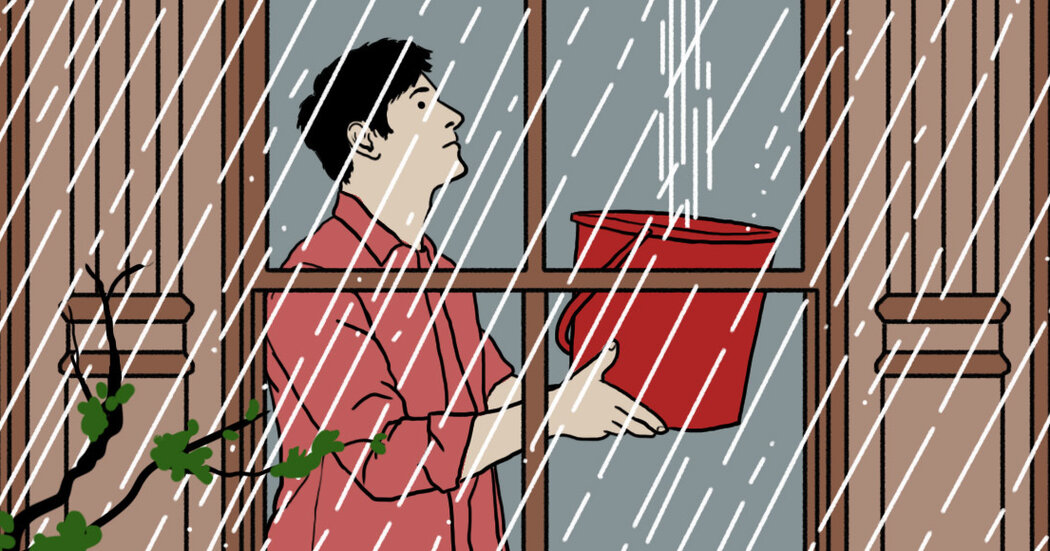[ad_1]
Q: We purchased a condo on the top floor of our co-op in Yorkville in April 2020. After living there for a while, we moved out and now rent it out to tenants. Once or twice a year, the ceiling leaks during heavy rains. We always notify the super and the management company, the super “finds” the problem and “fixes” it, our ceiling is patched and we get on with our lives. But it happens all the time. I’m concerned there may be mold or structural damage, and apparently it leaked into the elevator shaft. What can I do to force them to do a more thorough evaluation and permanent fix?
A: Ceiling leaks can lead to bigger problems if left unrepaired, so they must be properly addressed for the benefit of your unit and building. You need to have it evaluated by a professional (usually an engineer) with experience finding leaks.
Contacting your managing agent is a good first step. Record the date of contact and the responses you did or did not receive. Managing agents often have many buildings in their portfolios, and shareholder concerns are not always addressed in a timely manner.
Hire a lawyer to draft a letter to the co-op board and managing agent. Tell them you are aware of the leak, make it clear that it is a recurring problem, describe the damage it has caused, and point out that your repeated efforts to fix the problem have not produced a professional assessment. “In many cases, a lawyer’s letter will get the building’s attention,” said Lawrence Chaifetz, a real estate attorney with Chaifetz & Chaifetz LLC.
The co-op board has a fiduciary duty to care for the building, which is why they must respond. “I think the most important thing is for the board to remember that they have a responsibility to resolve this issue,” said Lorraine Nadel, an attorney at Nadel & Ciarlo who handles real estate disputes and litigation.
If the Board does not respond to the attorney’s letter, you may call 311 to report the breach. If a city inspector visits, it could result in a building violation, or, if the inspector finds other problems, it could lead to an unrelated violation. Be aware that this may damage your relationship with the board.
The next step, Ms. Nader said, is litigation, which is not uncommon if boards are dysfunctional or don’t have the money to make repairs.
For weekly email updates on residential real estate news, sign up here.






